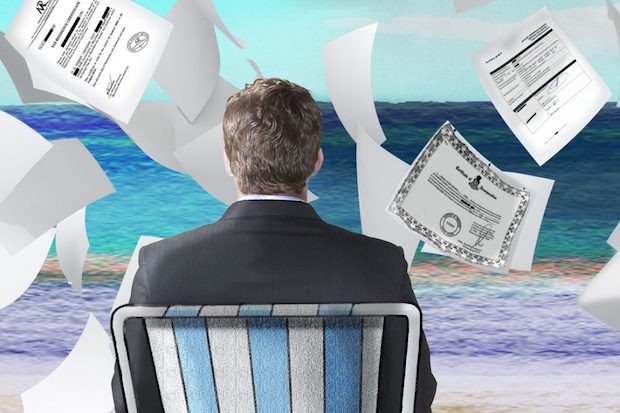"Nobody was allowed to talk about anything that we were dealing with – not with their partners, children or colleagues back in their newsrooms," said Wolfgang Krach, editor in chief, Süddeutsche Zeitung, speaking at the International Newsroom Summit in London yesterday (9 November).
The leading German newspaper broke the Paradise Papers to the public on 5 November, a leak of 13.4 million files relating to offshore investment and tax evasion of multinational corporations, companies and individuals all around the world.
"When we dived into the data, we decided to find co-operation partners, because it was very obvious that we wouldn't be able to do all of this investigation by ourselves," Krach said, noting the collaborative success of the Panama Papers leak, where a large network of international partners worked together to investigate the story.
"Once we had made it searchable, we saw information from more than 100 countries all over the world, in languages that no one in our newsroom could speak – we had to share this with other people."
The publisher sat down with the International Consortium of Investigative Journalists (ICIJ), as they did with the Panama Papers, and thought about the media organisations and individual journalists they could collaborate with and trust, deciding on many around the world, including the BBC and the Guardian in the UK.
That‘s what we call a bonus @ #17nrs Wolfgang Krach and Michael Cooke talking about the #paradisepapers pic.twitter.com/WhgFM4Dp8t
— Ralf Ressmann (@ralfressmann) November 9, 2017
"When we had the first leak, the Panama Papers, it was a crazy situation because we had invited a team of more than 100 journalists to Munich," he said.
"At that time in September 2015, there were only five or six people in our newsroom that knew about the project. But that day I entered the building of our newspaper, there was a crowd of people from all over the world at the entrance, stood by the security desk."
Krach told the many people in his building who asked him about it that Süddeutsche Zeitung was just trying to find a new way of collaborating with international partners.
"All day, people asked me but I couldn't say. We all went into a closed room with everyone and I told them the rules, and anybody that wants to be part of this project has to stick to these rules."
The rules
- Nobody is allowed to talk about the investigation with anyone on the outside.
- Nothing is to be kept secret within the team – everyone has to share every piece of information with those involved in the project.
- All the information and communication has to be encrypted.
"I think that all of the people who were part of the project were aware of the fact that it could endanger the lives of people and the work of hundreds of journalists," he said.
"We created a kind-of dark room (at Süddeutsche Zeitung) for all the newspapers and colleagues who were part of the investigation to look into the data – but they couldn't physically take them," he said.
Files in the Paradise Papers were more complicated, coming in lots of different formats, some unreadable by computers. The journalists got software company Nuix to sort and organise the files, and built a knowledge centre to enable the 95 partners and more than 380 journalists to access the information.
"We learnt a lot from the Panama Papers to the Paradise Papers, the first being how to handle the data, to make it searchable and have the software and computers for that," he said.
"It took us about six months just to get to know the structure of the data, but with the Paradise Papers, it took us 3 weeks because we had the know-how.
"We hired data journalists, technicians and software programmers, so now we are much better able to handle it next time there's a leak."
Free daily newsletter
If you like our news and feature articles, you can sign up to receive our free daily (Mon-Fri) email newsletter (mobile friendly).
Related articles
- Weekly journalism news update: design thinking, mobile journalism for local news and UK data units
- How can large-scale investigations work without driving journalists to the point of burnout?
- Tip: How to search ICIJ's Offshore Leaks Database by location
- Tip: Remember this advice for investigating hidden money
- Tip: Take note of this advice for investigating large data leaks










